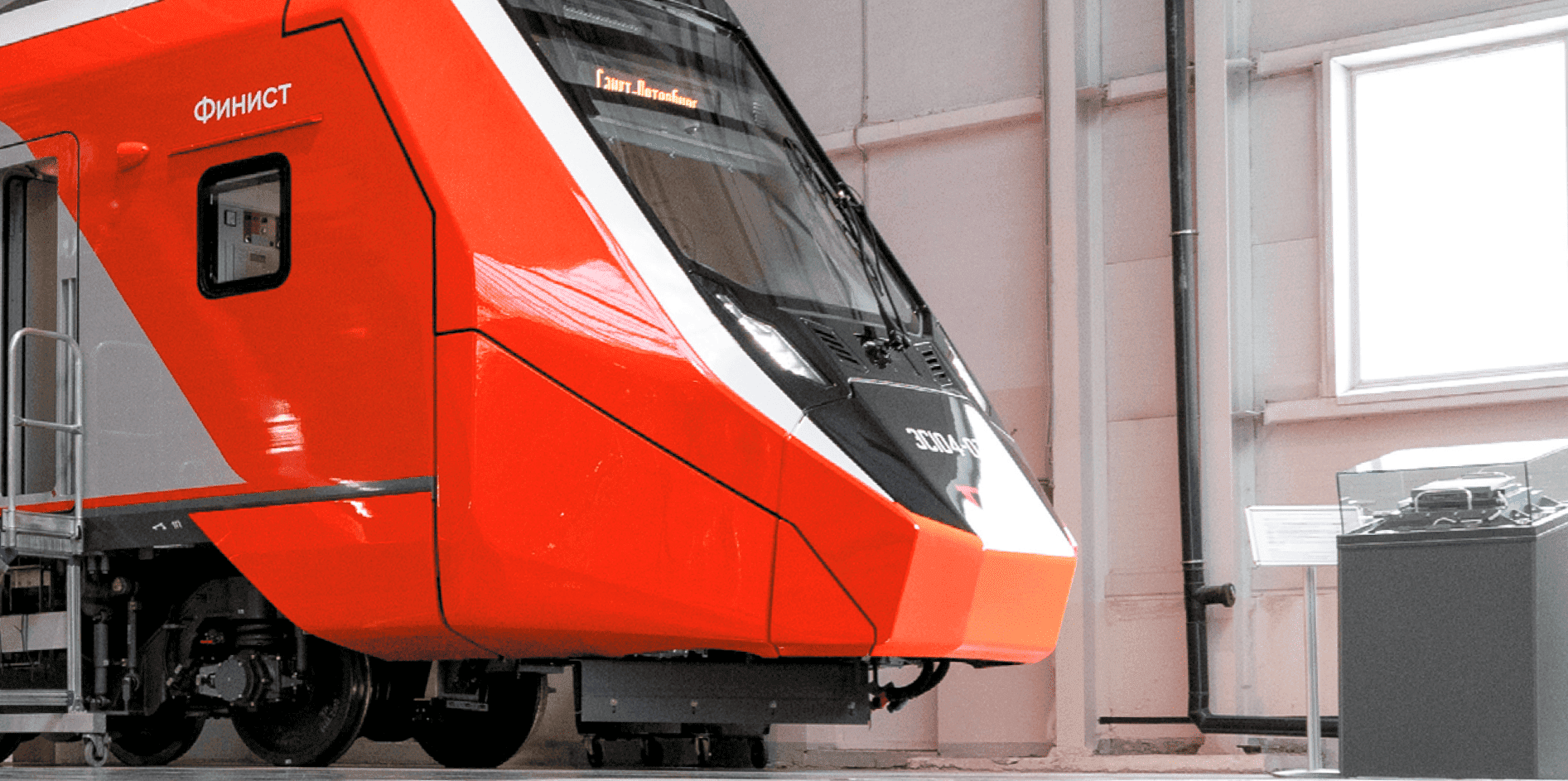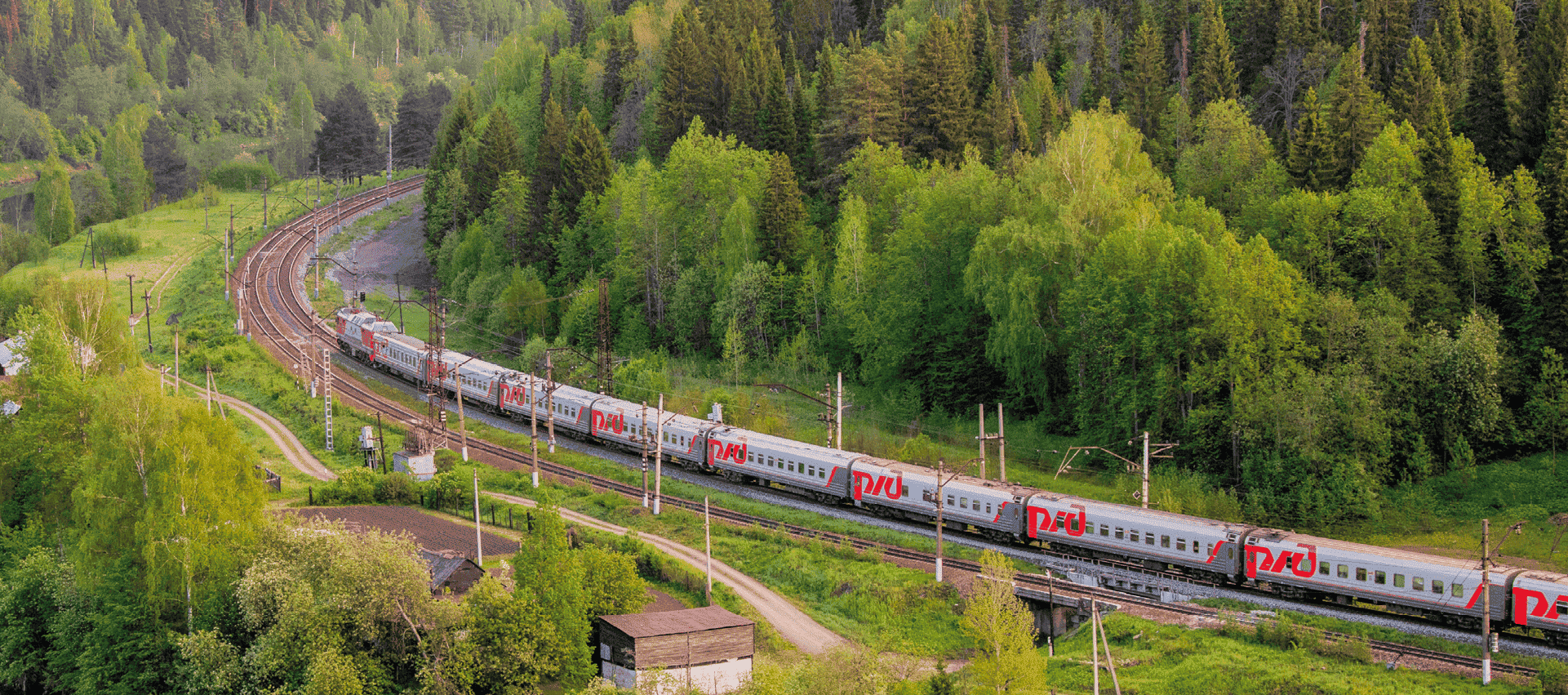Procurement management
Management approach
In its dealings with suppliers and contractors, Russian Railways ensures equal access to procurement opportunities, fosters fair competition, and maintains openness and transparency in full compliance with legal requirements.
Article 16.2 of Russian Railways’ Code of Business EthicsApproved by Russian Railways’ Order No. 1792/r dated 18 July 2023. establishes the Company’s commitment to building partner relationships with counterparties based on respect, integrity, and fairness. Russian Railways conducts thorough vetting of potential counterparties through reasonable efforts and procedures and the principle of due diligenceThe register of bad faith suppliers is maintained in accordance with Article 5 of Federal Law No. 223‑FZ On Procurement of Goods, Work and Services by Certain Types of Legal Entities dated 18 July 2011 and Russian Federation Government Decree No. 1211 dated 22 November 2012 On Maintaining the Register of Bad Faith Suppliers under the Federal Law On Procurement of Goods, Work and Services by Certain Types of Legal Entities..
Russian Railways’ procurement activities are governed by:
- Federal Law No. 223‑FZ On Procurement of Goods, Work and Services by Certain Types of Legal Entities dated 18 July 2011;
- other procurement laws and regulations;
- Regulation on the Procurement of Goods, Work and Services for the Needs of Russian Railways.
Russian Railways complies with anti‑corruption and tax clauses, and no conflict of interest requirements. Suppliers may be included in the register of bad faith suppliers only on the grounds and in the manner set forth by applicable Russian laws.
Procurement risks
Key procurement risks include:
- procurement of materials and resources at inadequate prices;
- procurement of materials and resources in volumes insufficient for Russian Railways’ units;
- failure to procure from small and medium-sized businesses as required;
- violation of laws when making procurement disclosures;
- violation of laws when arranging and holding procurement procedures;
- improper preparation of documents for competitive procurement.
To manage these risks, the Company implements the following measures:
- development and updating of Russian Railways’ regulations defining the steps to be taken by the Company’s units involved in procurement;
- procurement process automation;
- training of employees involved in procurement;
- control of compliance with Russian laws and Russian Railways’ regulations when arranging and holding procurement procedures.
Procurement in 2024
Procurement activities of Russian Railways are governed by the Regulation on the Procurement of Goods, Work and Services for the Needs of Russian RailwaysApproved by resolution of Russian Railways’ Board of Directors dated 28 June 2018 (Minutes No. 26). Russian Railways conducts procurement of goods, work and services in accordance with Russian laws, including Federal Law No. 223‑FZ On Procurement of Goods, Work and Services by Certain Types of Legal Entities dated 18 July 2011, and other regulations of the Russian Federation, including Russian Federation Government Decree No. 1352 On Specifics of Participation of Small and Medium Enterprises in Procurement of Goods, Work and Services by Certain Types of Legal Entities dated 11 December 2014.. In 2024, several amendmentsApproved by resolutions of the Company’s Board of Directors dated 27 September 2024 (Minutes No. 2) and 6 December 2024 (Minutes No. 5). were introduced to enhance and streamline procurement processes:
- The Regulation was aligned with the requirements of Federal Law No. 223-FZ On Procurement of Goods, Work and Services by Certain Types of Legal Entities dated 18 July 2011 (the “Procurement Law”) regarding the application of national treatment in procurementIn line with Federal Law No. 318‑FZ On Amending Certain Legislative Acts of the Russian Federation and Repealing Certain Provisions of Legislative Acts of the Russian Federation dated 8 August 2024.;
- provisions allowing for new procurement procedures in case of failed ones were removed, as this possibility exists by default and requires no specific regulation;
- clauses permitting final offer submissions during request‑for‑proposal processes were eliminated;
- wording clarifying the evaluation procedure for bids containing dumping prices under the contract price criterion was refined.
To simplify supplier participation, the templates of documents submitted as part of bids were also streamlined.
For more details on Russian Railways’ procurement activities, see the Procurement and Bidding section on the Company’s website
2024 performance
Competitive procurement continued to account for the largest share in the total procurement volume.
In the reporting year, Russian Railways procured goods, work, and services for RUB 2,401.4 bn, including:
- RUB 1,268.3 bn, or 52.8% – competitive procurement;
- RUB 939.0 bn, or 39.1% – single‑source procurement;
- RUB 194.1 bn, or 8.1% – non‑competitive procurement.

Single‑source procurement is special‑purpose procurement for the railway industry (contracts for the supply, servicing and maintenance, upgrade and repairs of the rolling stock worth RUB 363.2 bn).
According to the procurement breakdown, goods have the largest share in total procurement (44.8%), with materials and supplies, rolling stock, and equipment representing 20.9%, 8.8% and 5.4% respectively.
Work accounts for 34.8%, of which the largest shares are attributable to construction and installation (18.2%) as well as rolling stock upgrades, repairs, and maintenance (11.4%).
Services make up 20.4% in total procurement, including financial, transportation, security services, water supply and disposal, heating, gas and heat supply, medical services, lease services, and cleaning and laundry services (17.1%).
Achieving technological sovereignty (import substitution)
GRI 204‑1The Russian Railways Group continues to consistently enhance technological independence to ensure uninterrupted and secure transportation operations.
To further boost these efforts in 2024, the Framework for Advancing and Maintaining Technological Sovereignty of the Russian Railways Group through 2030 was developed and approved. Internal regulations were also adopted to formalise processes for continuous identification of imported components in use, assessment of their criticality for technological processes, and development and implementation of measures to adopt domestic alternatives.
The Consolidated Programme for Achieving Technological Sovereignty at the Russian Railways Group has been established, with the following objectives:
- identifying imported products used across the Group’s operations;
- implementing measures to mitigate risks associated with using imported products across the Group’s operations;
- ensuring technological independence in railway transportation.
Russian Railways or its relevant business units continue collaborating with manufacturers to reduce import dependence in transport engineering products.
In 2024, over 50 components were localised for high‑speed and ultra high‑speed multiple unit trains, supplementing previously localised items. Domestic alternatives were selected and implemented for RA3 series railbuses.
For Eastern Operating Domain capacity expansion, priority is given to import substitution of mainline diesel locomotive parts and components, alongside a programme to increase production capacity and develop manufacturing capabilities for key diesel engine parts.
Special self‑propelled rolling stock is undergoing reengining with domestic engines, along with the replacement of imported tamping units and control circuit boards.
2024 saw completion of design specifications and estimates for domestic automated marshalling yard control systems, while implementation continues for Russian‑made in‑motion rolling stock diagnostics equipment. Additionally, upgrades have been made to acoustic monitoring stations and the car oscillation detection system, reducing dependence on imported solutions.
Systematic efforts identify and replace import‑dependent labour‑saving devices and spare parts. The Company is building a regulatory reference database, assessing risks of domestic alternatives, and verifying supply stability with vendors. A compressor equipment market analysis confirmed minimal production stoppage risks due to sufficient domestic spare parts availability.
New implementations include Russian batteries, automated power stations, and fully domestic next‑generation microprocessor‑based interlocking systems using Russian processors and software.
To minimise reliance of production processes on imported components, the Company catalogues all foreign‑made parts in use, establishes long‑term maintenance and repair agreements with manufacturers, and builds strategic reserves of components.
For more details on import substitution in IT, see the Innovations and Efficiency Improvement section
Russian Railways was honoured with a diploma at the Responsible Business Leadership national award for its contribution to fulfilling strategic objectives in the Technological Sovereignty category.

Procurement from small and medium‑sized enterprises
Russian Railways continues to implement state policy for SME development, enhance procurement cost efficiency, and strengthen measures to increase SME procurement volumes.
The Company’s robust procurement policy has enabled it to maintain its leading spot in the Top 20 of the customer loyalty rating for SMEs for six years running, earning recognition for the highest volume of SME procurement in 2024.
This ranking, developed collaboratively by the Agency for Strategic Initiatives and SME Corporation, considers various criteria: total annual procurement from SMEs, diversity of items purchased and contracts signed, engagement in SME supplier development programmes, and other factors.
The Company strictly complies with statutory SME procurement requirements. In 2024, SME procurement reached 64.6% (against the 25% annual regulatory target), with SME‑exclusive procurement accounting for 20.9% (exceeding the 20% regulatory target).
The Company approved a universal SME Development Programme through 2030Approved by Russian Railways’ Order No. 2221/r dated 30 August 2023., enabling all business units to select SMEs for contracts with an investment component. Support agreements were signed with programme participants, with customised development roadmaps created.
Detailed programme participation guidelines are available in the Procurement and Bidding section of the official Russian Railways website. These include information on common errors made by bidders, guidance on avoiding them, sample procurement document templates, presentations on topics such as Becoming a Russian Railways Supplier and SME Participation in Russian Railways Procurement, checklists for self‑verification of application documents, details about support measures and partnership programmes, and other relevant information.
In 2024, as part of its collaboration with SME Corporation, the Company organised 29 training seminars attended by representatives of 2,157 small and medium‑sized enterprises.
Russian Railways operates a partnership programme with SMEs aimed at identifying and creating a roster of partners engaged in manufacturing and supplying high‑tech products as well as in R&D and technological innovation. As at the end of 2024, 174 SMEs had their eligibility for this partnership programme confirmed.
In 2024, modifications were introduced to enhance the programme’s effectivenessRussian Railways’ Order No. 2429r dated 4 October 2024.:
- the programme now includes an additional objective of replacing procurement from foreign manufacturers with domestic products;
- the procedure for potential participants to join the partnership programme was simplified;
- the terms and conditions for removing participants from the programme registry were clarified;
- potential participants are now required to confirm they do not hold foreign agent status.
Sustainable development and supplier engagement
Occupational health and safety
The Company relies on the Regulation on OHS Relations of Russian Railways with Contractors to ensure safe work of contractors on its sites.
It stipulates OHS requirements for contractors in service contracts, putting relevant branches where contractors perform work in charge of overseeing compliance. In case of violations, the contractor is penalised as provided for in the contract.
Contracts for work on Russian Railways sites and premises include the following:
- OHS provisions regulating responsibilities of the customer and contractors, including contractor liability for breaching safety rules;
- provisions on contractor staff compliance with Russian Railways’ OHS requirements;
- provisions on the timely notice to the Company of all accidents, injuries, health impairment and illnesses of employees, and other work‑related emergencies.
Supplier environmental responsibility
The Company adopted an in‑house methodology to assess supplier environmental responsibility.
To monitor contractor compliance with environmental requirements, we use the Methodology for the Recognition and Assessment of Environmental Requirements for Products, Raw Materials and Supplies Purchased by Russian Railways’ Business Units.
This methodology regulates compliance with additional requirements and helps:
- reduce the environmental footprint;
- improve working conditions;
- increase the Company’s economic performance through better energy and resource efficiency.
Supplier hotline
GRI 2-26To ensure that legal entities and individuals exercise their right to access information about Russian Railways’ procurement of goods, work, services and can participate in relevant procurement activities, the Company operates a hotline to address any enquiries related to procurement.
This hotline offers guidance on the organisation and execution of competitive procurement processes.
Enquiries can be submitted 24/7, with each being addressed within one business day. Questions and answers are made available on the Company’s official website.

